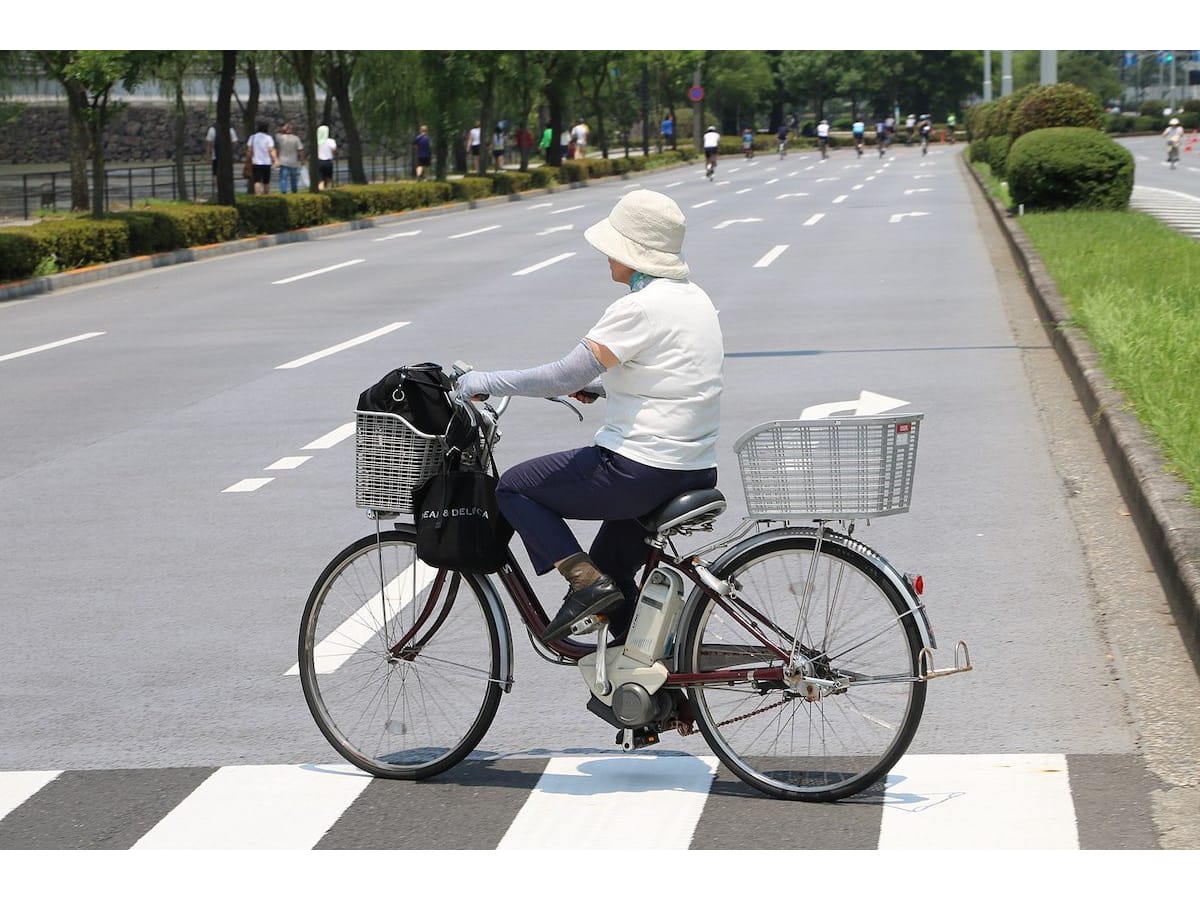- Tags:
- anarchy / bicycle parking / bicycles / Tokyo / traffic rules
Related Article
-

Tokyo Restaurant Offers Free Meals For 50 Minutes Of Work
-

Tokyo’s New Hedgehog Cafe Is Japan’s Paradise For Prickly Cuteness!
-

Japanese Tech School Lets Students And Maids Learn Game Programming Together For Mutual Benefit
-

World’s Most Intense Matcha Ice Cream Makers Turn Their Rich Expertise to Green Tea Chocolate
-

Den-en-chōfu: Ebeneezer Howard’s utopian garden suburb brought to life in Tokyo
-

Fresh Watermelon Filled With Soft Serve Ice Cream Is Tokyo’s Newest Summer Treat



Tokyo must be the single cleanest and most orderly city in the world. Everything is beautifully well-maintained, there is no litter on the streets, and you could practically eat your dinner off the floor of a typical subway train. Nor do you have to contend with other people's taste in music blaring from passing cars, or the risk of treading in their pets' offerings as you walk down the street.
This is quite an achievement when you consider that Tokyo is the largest urban conglomeration on the planet. Indeed, it has been said that Tokyo is the only capital city that actually works, which is to say: its infrastructure is well maintained, its transport system works efficiently, and its public housing is actually in better condition than much of its private housing.
7q3kjfehb, CC BY-SA 4.0, via Wikimedia Commons
The cleanliness and orderliness of the city is down to the rules its people are expected to live by. Don't play your music too loud. Pick up after your pet. Put your rubbish out on the right day (and make sure it is the right kind of rubbish).
While rules are key to the smooth functioning of the city, they can grate, especially if you're accustomed to life in a more easy-going, less disciplined city. So it is comforting to know that there is a realm of relative chaos in the midst of all this orderliness: the world of the cyclist.
In Tokyo, cyclists are free to do things that would get them arrested in any other capital city. Hardly anyone wears a helmet and cycling on the pavement is positively encouraged. Even things that are officially against the rules, like cycling on the wrong side of the road, barely raise an eyebrow. In theory, you're not allowed to hold an umbrella whilst riding a bike, but that doesn't stop millions of otherwise law-abiding, wouldn't-say-boo-to-a-ghost Tokyoites from doing just that every time it rains.
It's not just the police that turns a blind eye to these highway anarchists. Buses keep a respectful distance from cyclists, and taxi drivers give way to them. Tolerance of cyclists' whimsy, combined with literally thousands of miles of cycle paths, means that Tokyo's cyclists enjoy a gilded life. Ask them what a pothole is, and they'll probably tell you they saw one once in a documentary about ghetto life in the United States.
These bikes parked in Shinjuku will probably be taken away pretty soon.| Dick Thomas Johnson, CC BY 2.0, via Wikimedia Commons
The only rule governing the life of the Tokyo cyclist is that you must not go too fast. This is a golden rule, and if you break it, eyebrows will most certainly be raised. That's because it is only by going slowly that cyclists can negotiate the risks inherent in any system that has no rules.
First and foremost, that means cyclists coming up the street the wrong way, but you also have to contend with pedestrians, who have the right to walk out in front of cyclists at any moment.
Cycling down my local shōtengai (commercial district), I feel like one of the thousands of koi carp, gently gliding through still waters. It is an experience quite unlike cycling in London or New York, where cyclists hurtle around like arrows fired from wonky bows, and cycling to work has become a sport for frustrated and over-caffeinated young men.
Indeed, it might be said that ‘Don’t go too fast’ is the only rule of life in Japan. That means 'Don’t rush on crowded train platforms', but also 'Don’t rush through legislation in response to new-fangled concerns like accepting refugees, limiting carbon emissions or ensuring that woman have equal access to schooling and jobs.'
Aside from the unwritten rule that says you mustn't ride too fast, easy riders should also be aware of the ban on parking outside stations. This can be a rude awakening. Suddenly, you find yourself at the limits of the free world, face to face with the surveillance, policing, and enforcement that govern other aspects of daily life in the capital.
It is not clear why parking is banned around stations. According to the flyer from the Tokyo Clean Campaign that I found attached to my handlebars last week, more than 27,000 bicycles are illegally parked in Tokyo every year. Apparently “a considerable amount of tax is spent for the disposition of illegally parked bicycles.” This makes illegal bike parking “a social issue that cannot be ignored.”
At first sight, this might appear to be common sense – with so many commuters, and so many bicycle owners, stations would be overrun with bikes without some kind of policing. But I found it hard to resist the conclusion that they are mainly banned on aesthetic grounds, especially as the flyer warned that illegal bike parking “puts the area around the station in disorder and deteriorates the beauty of the community.”
It also referred to safety - always a good way to get the public’s attention in a country as security conscious as Japan. Apparently, illegal bike parking “obstructs evacuation attempts during a disaster and the passage of emergency vehicles, such as ambulances and police cars.”
Call me over-sensitive, but I also felt a bit offended that the flyer featured a foreigner's mug, in this case that of Nigerian-born tarento Bobby Ologun. Are foreigners really more likely to break the bike parking rules than Japanese?
Well, in my case, the answer is certainly 'yes.' Undeterred by the flyer, a few weeks later I parked my bike in the same spot, only to come back an hour later and find it gone. A kindly passer-by, concerned by the mess I was making by repeatedly hitting my head on the pavement, not to mention the disturbance I was causing by bawling like a baby, told me that it had probably been taken to the local bike pound.
Sure enough, after presenting my ownership documents, a member of staff at the pound confirmed that they had my bike. He was very nice about it too - there was none of the sarcasm or sneering smiles authority figures usually reserve for anarchists. He really was very sorry it should have come to this, he assured me. It was a matter of no little regret for all concerned.
I tried remonstrating. I told him I didn’t know about the 'no parking outside stations' rule. But he just smiled kindly. “That will be 5000 yen please,” he said. I tried to appeal to his tender nature: I told him I'd only parked outside the station because I was taking my mother-in-law to hospital. His smile remained stubbornly fixed. “That will be 5000 yen please,” he repeated.
I resorted to emotional blackmail, pleading that my mother-in-law was only going to hospital because my wife was about to go into labour, but that didn't work either and neither did my threat to complain to the prime minister (whose son I once taught English to). Nothing could sway that humble public servant from doing his duty. 'God Save the Queen', I muttered, visibly touched, and handed over a hard earned 5000 yen note.
For more information on where the rules on bicycle parking in Tokyo, see this website.
There is also a YouTube video: